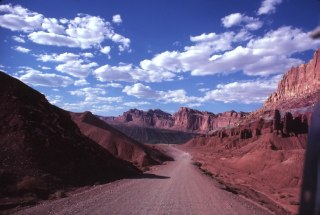
Capitol
Reef National Park lies along the Waterpocket Fold, a great monoclinal
flexure shown here dipping to the right. The massive Jurassic
age Navajo Sandstone forms the most resistant structures and slot
canyons.
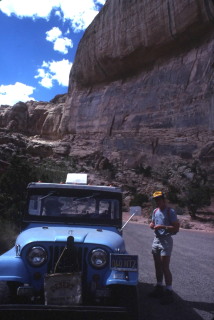
My PhD research topic was formulated over a period of years, beginning
with an extended tour of the Colorado Plateau with my buddy Steve
Tetreault during the summer of 1973. We pondered the reason
for the pictured overhang in the walls of Capitol Gorge in Capitol
Reef National Park, pictured behind me.
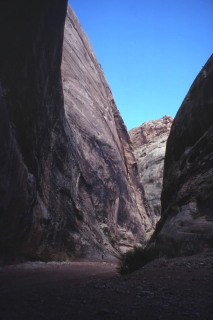
This view shows the enormous chasm of Capitol Gorge cut through the
Navajo Sandstone. I noticed thick sheet joints, similar to what
I had learned to climb in the granites of Yosemite National Park in
California.
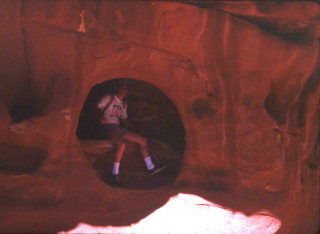
Early in my field work I began to discern that discrete variances
in weathering had a profound impact on the sandstone’s tensile
strength, and hence, the development of anomalous openings and cavities,
such as the one shown here at Capitol Reef.
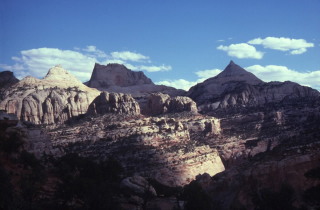
The back country of Capitol Reef contained spectacular vistas like
this one, with pseudo horns and cirques reminiscent of glaciated terrain.
We seldom saw any tourists in the back country.
Questions or comments
on this page?
E-mail Dr. J David Rogers at rogersda@mst.edu.
